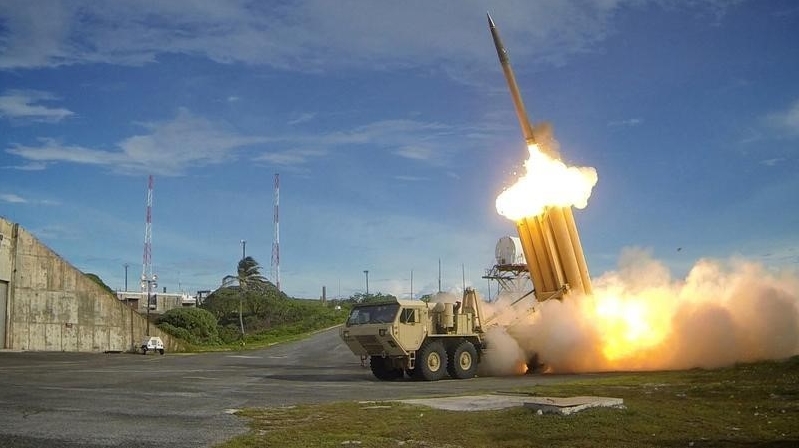
North Korea said on Monday it has told the United States it will sever the only channel of communication between them, at the United Nations in New York, after Washington blacklisted leader Kim Jong Un last week for human rights abuses.
All matters related to the United States, including the handling of American citizens detained by Pyongyang, will be conducted under its "wartime law," the North's official KCNA news agency said.
The move is the latest escalation of tension with the isolated country, which earlier on Monday threatened a "physical response" after the United States and South Korea said they would deploy the THAAD missile defense system in South Korea.
"As the United States will not accept our demand for the immediate withdrawal of the sanctions measure, we will be taking corresponding actions in steps," KCNA said.
"As the first step, we have notified that the New York contact channel that has been the only existing channel of contact will be completely severed," it said.
"The Republic will handle all matters arising between us and the United States from now on under our wartime laws, and the matters of Americans detained are no exception to this."
It was not clear how "wartime laws" would affect the handling of the two Americans detained. But North Korea has indicated in the past that wartime laws would mean that detainees will not be released on humanitarian grounds.
The North and the United States remain technically at war because the 1950-53 Korean War, in which Washington sided with the South, ended only with a truce.
The two Americans known to be detained in North Korea include Otto Warmbier, a University of Virginia student sentenced to 15 years of hard labor in March for trying to steal an item with a propaganda slogan, according to North Korean state media. The other, Korean-American Kim Dong Chul, is serving a 10 year sentence for espionage, state media said.
A University of Virginia spokesman said the university remains in touch with Warmbier's family but did not have additional comment.
The so-called New York channel has been an intermittent point of contact between the North and the United States, which do not have diplomatic ties, to exchange messages and, less frequently, hold discussions.
North Korea said last week it was planning its toughest response to what it deemed a "declaration of war" by the United States after Washington sanctioned Kim.
On Saturday, the North test-fired a ballistic missile from a submarine, but it appeared to have failed after launch.
ESCALATING TENSION
The United States and South Korea said on Friday that the Terminal High Altitude Area Defense (THAAD) anti-missile system will be used to counter North Korea's growing nuclear and ballistic missile capabilities.
The announcement was the latest move by the allies against the North, which conducted its fourth nuclear test this year and launched a long-range rocket, resulting in tough new U.N. sanctions.
"There will be physical response measures from us as soon as the location and time that the invasionary tool for U.S. world supremacy, THAAD, will be brought into South Korea are confirmed," the North's military said early on Monday.
"It is the unwavering will of our army to deal a ruthless retaliatory strike and turn (the South) into a sea of fire and a pile of ashes the moment we have an order to carry it out," the statement carried by KCNA said.
The North frequently threatens to attack the South and U.S. interests in Asia and the Pacific.
South Korean Defence Ministry spokesman Moon Sang-gyun warned the North not to take "rash and foolish action". Otherwise, he said, it would face "decisive and strong punishment from our military."
The move to deploy the THAAD system also drew a swift and sharp protest from China.
Chinese Foreign Minister Wang Yi said on Saturday that THAAD exceeded the security needs of the Korean peninsula, and suggested there was a "conspiracy behind this move."
South Korean President Park Geun-hye said on Monday the THAAD system was not intended to target any third country but was purely aimed at countering the threat from the North, in an apparent message to Beijing.
A South Korean Defence Ministry official said selection of a site for THAAD could come "within weeks," and the allies were working to have it operational by the end of 2017.
It will be used by U.S. Forces Korea "to protect alliance military forces," the South and the United States said on Friday. The United States maintains 28,500 troops in South Korea, a legacy of the 1950-53 Korean war.







